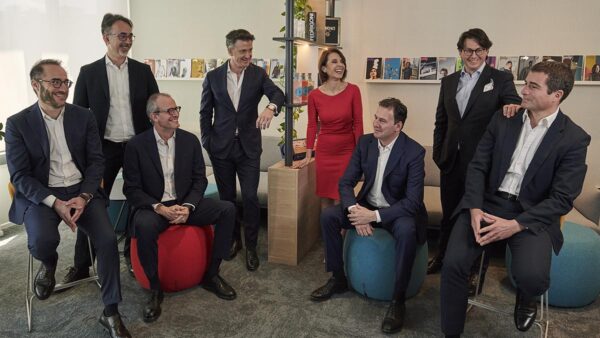
Smart Packaging & Smart Labels: Digitization to Support Sustainability
A powerful combination of technology innovation and sustainability is demonstrated by
RFID (Radio-Frequency Identification) inlays, the key evolution in the digitization of
packaging. Industry analysts foresee a booming RFID market in the coming years, growing to $22.2
billion US dollars by 2032 (IDTechEx). More is being – and will be – invested in this
digitization technology because of the many benefits it brings for inventory accuracy,
supply chain efficiencies and logistics management, brand protection, new opportunities
for enhanced customer experiences, just to name a few.
Through RFID technology, it is indeed possible to uniquely identify a product and its
packaging, progressively collecting key data along the supply chain and enabling full
visibility and monitoring of essential parameters, such as temperature in the case of
perishable products. The benefits do not stop at the point of sale but potentially extend
beyond, where RFID technology enables consumer engagement with personlized content,
all the way to effective and efficient “end-of-life” product management. Thus, a ‘digital
product passport’ can become reality at large scale: the automated and digitized product
data capture each step of the product lifetime cycle, from production to distribution, from
retail stores to consumers, and from circular use to recycling.
How does RFID technology work?
At the heart of technology are RFID inlays, small and battery less radio signal
transponders, that can return a unique digital identity and other data to dedicated readers
(in business applications) or common smartphones (in consumer applications). An RFID
inlay consists of a tiny silicon chip attached to a conductive antenna foil on a paper or PET
substrate, flat and mostly entirely invisibly embedded into a label or a product. Once
connected to a product, the RFID inlay identifies the product itself, realizing the potential of
the Internet of Things.
RFID: more sustainable supply chain and consumption management
Traceability plays a key role in improving the sustainability of supply chains: ensuring the
delivery of the right amount of products at the right time and in the right place helps to
reduce waste of natural resources and minimize the environmental impact of each activity.
Specifically, RFID technology can help to optimize inventory levels, to minimize the level of
waste in the case of perishable items, and to optimize logistics by reducing related CO2
emissions. Finally, RFID technology can provide precise and timely information on product
and packaging recyclability, as well as support greater effectiveness in automated waste
management, e.g. automated sorting.
In summary, RFID technology offers a great opportunity to reduce waste and increase
recycling, incentivizing businesses and consumers alike. (envirotechmagazine.com).
"Smart" revolution
RFID technology is evolving rapidly. Fedrigoni Group entered this world with the
acquisition of the majority share in Tageos and its expertise in the design, development
and production of RFID inlays and tags. By adding Tageos’ technology to our group’s
portfolio – both, a compelling range of innovations in "smart packaging" (in the Paper
division) and "smart labels" (in the Self-Adhesives division), can now be offered to
Fedrigoni’s customers and beyond. By combining our own distinctive know-how on paper-
based applications with Tageos’ RFID expertise, we can bring innovative, customized,
certified (by the Auburn University RFID Lab) and sustainable solutions to existing and
new markets.











